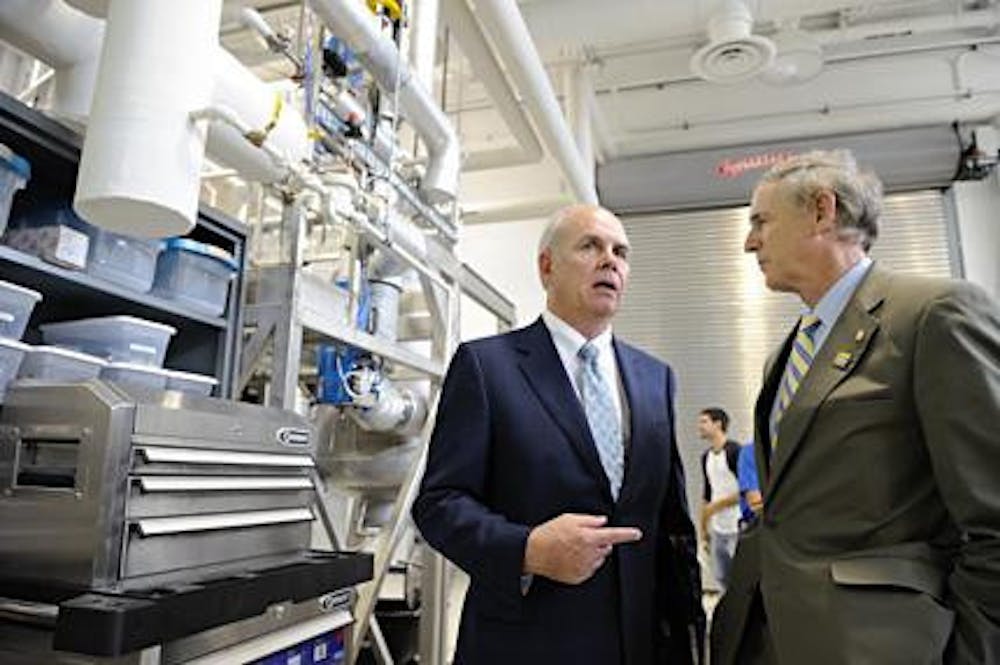A type of alternative fuel made from plant waste could replace almost half the country's fuel consumption, said a UF professor whose renewable energy research is the cornerstone of a new research facility that opened Friday in Frazier Rogers Hall.
Lonnie Ingram, a UF microbiology professor and pioneer in biomass research, said the new facility, the Cellulosic Ethanol Pilot Plant, would allow researchers to refine the process of converting plant waste, such as lawn clippings and citrus peels, to ethanol.
"The University of Florida has the potential to lead the country in alternative fuel technology development," Ingram said.
This type of technology is innovative because it uses enzymes to convert cellulose, the inedible portion of plants, by distilling it into clean-burning ethanol, he said.
The process uses plant waste instead of corn, which is used in most ethanol production. There is no negative impact on the food supply, Ingram said.
Florida in particular could be a leader in this form of ethanol production because its warm climate allows year-round production of plants, he said.
Constant production makes Florida the No. 1 biomass producer, with more than 124 million tons generated each year, he said.
Florida could potentially produce more than 10 billion gallons of ethanol fuel, Ingram said.
UF President Bernie Machen said Florida "dodged a bullet" this year in terms of fuel shortages, although they're bound to hit the state sometime in the future.
"Our state imports all oil we consume here," Machen said at the new lab's dedication. "Our dependence on gas is still something that puts Florida in the bind it is in."
Floridians should be excited about this type of fuel development, he said.
"Floridians will like this research because it affects us," Machen said. "This is a perfect solution to Florida's energy situation."
Not only could Florida benefit from a new fuel technology, but the country could as well, said Republican Rep. Cliff Stearns at the dedication.
"Reducing our dependence on foreign oil is key," Stearns said. "Our dependence is a national security threat because we're buying oil from dangerous countries."
The pilot lab is a step toward reducing that dependence, and Ingram said it's only the beginning.
"It's a process to make further advancements," he said. "It allows us to look more realistically at ethanol production, rather than just practicing in another lab."






